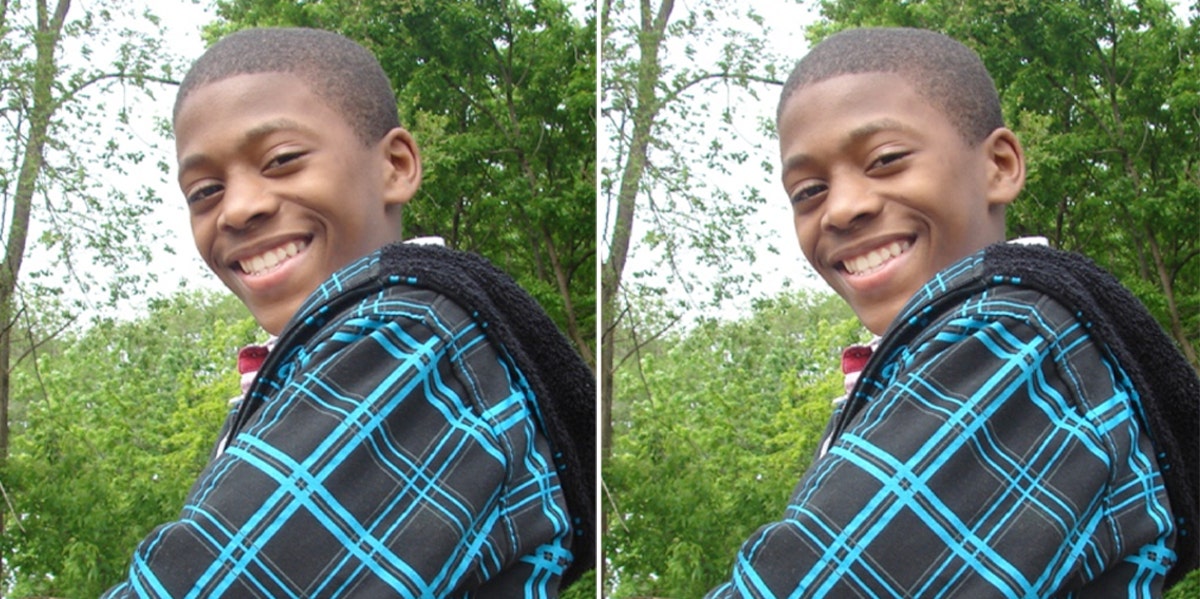Losing Clinton
I'm overwhelmed by the amount of love and the amount of loss that comes with being a teacher.
 Courtesy of the Author
Courtesy of the Author I met Clinton in my first year of teaching. He was a fourth-grader, and small for a fourth-grader, and also the only fourth grader that showed up on the first day of Chess Club.
I really didn’t know that much about chess, but I knew even less about how to say no to doing stuff when asked by my principal, and so I was the Chess Club supervisor.
Most of the kids came in, dumped their stuff by the sink, and started pairing themselves off to play games against their friends. But then there was this little fourth-grade kid sitting by himself messing with a Rubik’s cube.
So, I walked on over and offered to teach him to play. He smiled at me for the first time, a smile with eyes that shouted of joy and innocence and a grin that hinted of trouble.
He kicked my ass in under five minutes. During my turns, he solved the Rubik’s cube twice, barely looking at it as his eyes searched the room for stimulus, as he joined conversations in the tables around us, as he buzzed in his seat with energy that suggested he was plugged into the wall.
These are the kinds of stories people have about Clinton. These are the kinds of stories I told about him today at his funeral.
Just a few months into being 24, we lost Clinton, and so today we told stories.
There are other stories about Clinton, the kind you don’t tell at funerals. There are so many stories about how a kid like him that was white would have been given room to explore his brightness rather than being asked to perform his intelligence on command. There are stories about how we tried to control Clinton, to quiet Clinton, to make Clinton conform.
I was part of this problem. I had Clinton every year 4th-8th grade in my advisory, and then taught him all of his 8th-grade year.
I taught him some years in high school too but honestly can’t remember which years he was in my room because he was supposed to be there and which ones he was just hanging out or hiding among the students pretending he was supposed to be there.
I’d eventually catch him, call him out. He’d flash that same smile, that exact same one, give me a “k see ya” on his way to some other place he was probably not supposed to be.
Clinton was kind of always in trouble, wore it comfortably as he walked around, but usually just the harmless kind of trouble.
His instinct to not get in trouble seemed to always kick in just after he did something wrong.
When students got their own laptops in 8th grade, it took Clinton less than a day to break through the school internet firewall and create his own admin log-in for his machine. In high school, he was accessing and changing his grades for lord knows how long, only getting caught when he started doing it for his friends and anyone else who asked nice.
There were months thereafter that, maybe more, when Clinton wasn’t allowed to use technology at school, and then only under direct supervision with limits.
I’ve been thinking about that a lot today, about how we took this thing that he was so, so good at and took it away. After years of proving to us that punishments did not alter his behavior, we removed his ability to get into the kind of trouble we wanted to punish and left it at that.
I think any teacher would tell you that when we lose a student, for any reason, that punch of loss is followed immediately by another of regret.
There are all the things we did or didn’t do or could or should have done. There are moments we cared too much about little things or missed some of the big ones.
Today, I am remembering Clinton; his smile and his smarts, and his beautiful heart. And I’m thinking about how often in schools we push kids away from their strengths, taking time or attention from what they are best at to fail hard at what they struggle with.
Today, I’m sad about Clinton, I’m holding his memory and his family and all the faces from those school days I saw all grown up at the service today. Today, I am overwhelmed by the amount of love and the amount of loss that comes with being a teacher of young people.
Tomorrow I’ll walk into my classroom remembering Clinton; knowing every one of my students has strengths and it’s my job to give them room to explore.
Thomas Rademacher is the author of ‘It Won’t Be Easy’ and 2014 Minnesota Teacher of the Year. Learn more about him on his website.
